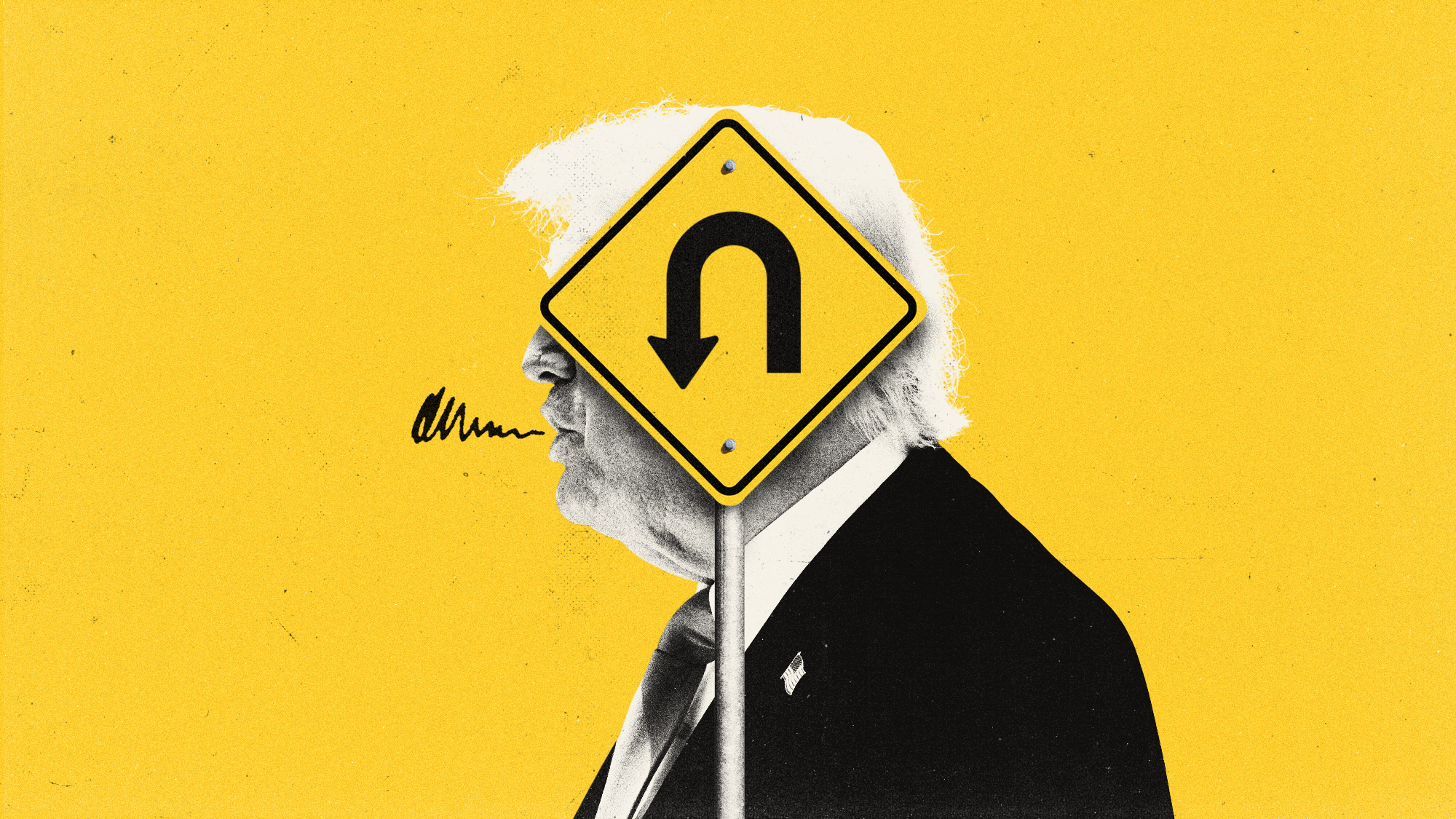Trump vs. China: another tariff U-turn?
Washington and Beijing make huge tariff cuts, as both sides seek 'exit ramp' from escalating trade war

A free daily email with the biggest news stories of the day – and the best features from TheWeek.com
You are now subscribed
Your newsletter sign-up was successful
America and China have agreed to slash their reciprocal tariffs on imports, in what some see as a trade U-turn from Donald Trump, and others laud as Washington strong-arming Beijing to the negotiating table.
After a weekend of talks in Geneva, US Treasury Secretary Scott Bessent announced a 90-day "pause" that will see US tariffs on Chinese goods fall from 145% to 30% and Chinese tariffs on US goods fall from 125% to 10%. Both sides, he said, had shown "great respect" in the negotiations.
What did the commentators say?
Like most of Trump's moves, today's agreement "can be interpreted in more ways than one" said Michael Simmons in The Spectator. It could be that the "damaging economic effects of his tariffs" have forced him into a U-turn. Or perhaps this was his plan all along: "push everyone to the brink, manufacture a crisis, then return to the table. The art of the deal."
The Week
Escape your echo chamber. Get the facts behind the news, plus analysis from multiple perspectives.

Sign up for The Week's Free Newsletters
From our morning news briefing to a weekly Good News Newsletter, get the best of The Week delivered directly to your inbox.
From our morning news briefing to a weekly Good News Newsletter, get the best of The Week delivered directly to your inbox.
It's anyone's guess "which of the two it really is" but there's no denying how "grim" the economic forecasts for the US were, with "inflation projected to double to 4%" and many predicting a recession in the second half of the year.
"The US now clearly wants an exit ramp" from tariffs, said John Authers at Bloomberg. "As there is virtual unanimity in financial markets that tariffs are a really bad idea, that is cause for celebration."
Despite Trump's "Liberation Day" bravado, "all it took" for the tables to turn was for "China to slap controls on exports of rare earths", said Barry Eichengreen in El Pais. The US may have been "in a better position than China to win the trade war" but America's reliance on Chinese imports has proven "not an advantage but a liability". Those rare-earth materials "go into batteries, electronics" and components for US smartphones, motor vehicles and military hardware.
That said, China, too, had a reason to come to the table. They talked tough in public but "behind closed doors" officials in Beijing "have grown increasingly alarmed about tariffs' impact on the economy, and the risk of isolation as China's trading partners have started negotiating deals with Washington", said Reuters, citing three officials "familiar with Beijing's thinking".
A free daily email with the biggest news stories of the day – and the best features from TheWeek.com
What next?
Today's announcement attenuates many of the more apocalyptic economic forecasts for the US but the president's tariff strategy has "backfired spectacularly", said Imran Khalid at The Hill. It's tempting to view Trump's tariff gambits as "erratic improvisations"; actually, they are "symptomatic of a deeper malaise: an administration where the performance of toughness consistently eclipses the pursuit of results".
And Washington's "wanton behaviour" in other areas – "cutting aid, coercing long-time allies, ignoring international rules and undermining multinational institutions" – offers China an "unprecedented opportunity" to "shift the balance of power in its favour", said Eduardo Porter in The Washington Post. "Whether Beijing plays its hand well is another matter."
-
 The Olympic timekeepers keeping the Games on track
The Olympic timekeepers keeping the Games on trackUnder the Radar Swiss watchmaking giant Omega has been at the finish line of every Olympic Games for nearly 100 years
-
 Will increasing tensions with Iran boil over into war?
Will increasing tensions with Iran boil over into war?Today’s Big Question President Donald Trump has recently been threatening the country
-
 Corruption: The spy sheikh and the president
Corruption: The spy sheikh and the presidentFeature Trump is at the center of another scandal
-
 Currencies: Why Trump wants a weak dollar
Currencies: Why Trump wants a weak dollarFeature The dollar has fallen 12% since Trump took office
-
 TikTok: New owners, same risks
TikTok: New owners, same risksFeature What are Larry Ellison’s plans for TikTok US?
-
 Trump wants a weaker dollar, but economists aren’t so sure
Trump wants a weaker dollar, but economists aren’t so sureTalking Points A weaker dollar can make imports more expensive but also boost gold
-
 Leadership: A conspicuous silence from CEOs
Leadership: A conspicuous silence from CEOsFeature CEOs were more vocal during Trump’s first term
-
 The end for central bank independence?
The end for central bank independence?The Explainer Trump’s war on the US Federal Reserve comes at a moment of global weakening in central bank authority
-
 Will Trump’s 10% credit card rate limit actually help consumers?
Will Trump’s 10% credit card rate limit actually help consumers?Today's Big Question Banks say they would pull back on credit
-
 Can Trump make single-family homes affordable by banning big investors?
Can Trump make single-family homes affordable by banning big investors?Talking Points Wall Street takes the blame
-
 How prediction markets have spread to politics
How prediction markets have spread to politicsThe explainer Everything’s a gamble